Advancement
The Institute explores how technology is reshaping justice systems worldwide and develops policy recommendations to ensure that human rights are protected in AI-assisted court proceedings. Through research and cross-sector collaboration, we spotlight innovations, assess risks, and examine how technology is transforming the law, with a focus on fair trial rights and due process. Building on Amal Clooney and Philippa Webb’s award-winning book The Right to a Fair Trial in International Law (OUP, 2021), this pillar of our work asks: what does the right to a fair trial mean in the digital age?

The AI Justice Atlas serves as an interactive resource for understanding the current use and regulation of AI in criminal proceedings. Designed for legal professionals, policymakers, researchers, and anyone interested in the intersection of technology and justice, the AI Justice Atlas illustrates how AI is being used in criminal proceedings in jurisdictions around the world and the legal standards and regulations that govern this.
As of October 2025, the map focuses on the use of AI by judges as well as some uses by prosecutors, defence counsel and other parties to criminal proceedings. The Atlas is a dynamic resource and is updated on a regular basis to cover additional jurisdictions, and later civil as well as criminal trials. The Institute will also assess the compatibility of the use of AI tools in court with international standards including the right to a fair trial.
Disclaimer & Acknowledgments
The AI Justice Atlas provides examples of the use and regulation of AI-based technologies in criminal proceedings across selected jurisdictions and is not intended to be exhaustive. The scope of the research is limited to express and identifiable mentions of AI in official sources and does not necessarily capture broader or implied uses or regulation. This tool also does not cover the use of AI in civil proceedings unless otherwise indicated.
The material collected in this mapping tool is intended for general information purposes only and must not be used as a substitute for professional or legal advice. It is updated periodically but may not reflect the most recent developments. The Oxford Institute of Technology and Justice, the University of Oxford, the Clooney Foundation for Justice, and their representatives, as well as the law firms and lawyers that have contributed to this mapping tool make no guarantees or warranties regarding the accuracy or completeness of the information provided in the mapping tool and exclude liability for any loss or other result arising from any reliance placed on information presented in this mapping tool.
The Oxford Institute of Technology and Justice is grateful to all those who contribute to the AI Justice Atlas. We benefit from the insights of judges, public officials, and other practitioners interviewed on the use of AI tools in their jurisdictions. We thank the following law firms and lawyers for providing legal information used to create the summaries in the Atlas and endorsement of these summaries. In particular we thank Quinn Emanuel Urquhart & Sullivan LLP (China, India, Singapore, United Arab Emirates, United Kingdom, United States), Freshfields US LLP (Estonia, Spain, Turkey), Gibson, Dunn & Crutcher LLP (Argentina, Brazil, Chile, Colombia), Mr Nasser Al Osaiba of Global Advocacy and Legal Counsel (UAE), Mr Sanjeev Kapoor of Khaitan & Co (India), Paksoy (Turkey), Sorainen (Estonia), Webber Wentzel (South Africa), and Mr Wesley Mwafulirwa (Malawi).
Further projects under the Advancement Pillar are underway
Further projects are underway
ONLINE OPEN COURSE FOR JUDGES

We are partnering with UNESCO, the Saïd Business School and the Oxford Faculty of Law on a Massive Open Online Course (MOOC) on AI and the Judiciary, launching in 2026. We will provide training to tens of thousands of judges on AI and access to justice, fair trial rights, and women’s rights. We are also working with UNESCO on updates to the Draft Guidelines for the Use of AI in Courts and Tribunals, including recommendations for jurisdictions seeking to integrate AI responsibly.
fair trial adviser

With the support of Microsoft's AI for Good Lab and Office of Responsible AI, we are developing the Fair Trial Adviser – an AI-powered tool that will provide authoritative, practical guidance questions related to the fairness of trials. With thanks to Oxford University Press, the leading textbooks The Right to a Fair Trial in International Law (2021, Amal Clooney and Philippa Webb) and Freedom of Speech in International Law (2024, Amal Clooney and Lord Neuberger, eds), are at the centre of the dataset for this tool. Designed for judges, counsel, and parties, the Adviser will combine a user-friendly interface with ethical safeguards. As part of this work, we are also exploring formats like hackathons to co-design and stress-test the tool with potential users.
Global human rights repository

The Institute is collaborating with HURIDOCS to develop a Global Human Rights Repository, a comprehensive database that will aggregate publicly available human rights information from international human rights courts and bodies. At the moment, human rights jurisprudence is scattered across dozens of databases, some behind paywalls. This creates a barrier to the accessibility of international standards for lawyers, judges, law students and others. This project aims to equip lawyers, advocates and academics with the data and analysis they need to advance human rights and pursue justice more effectively.
Our team
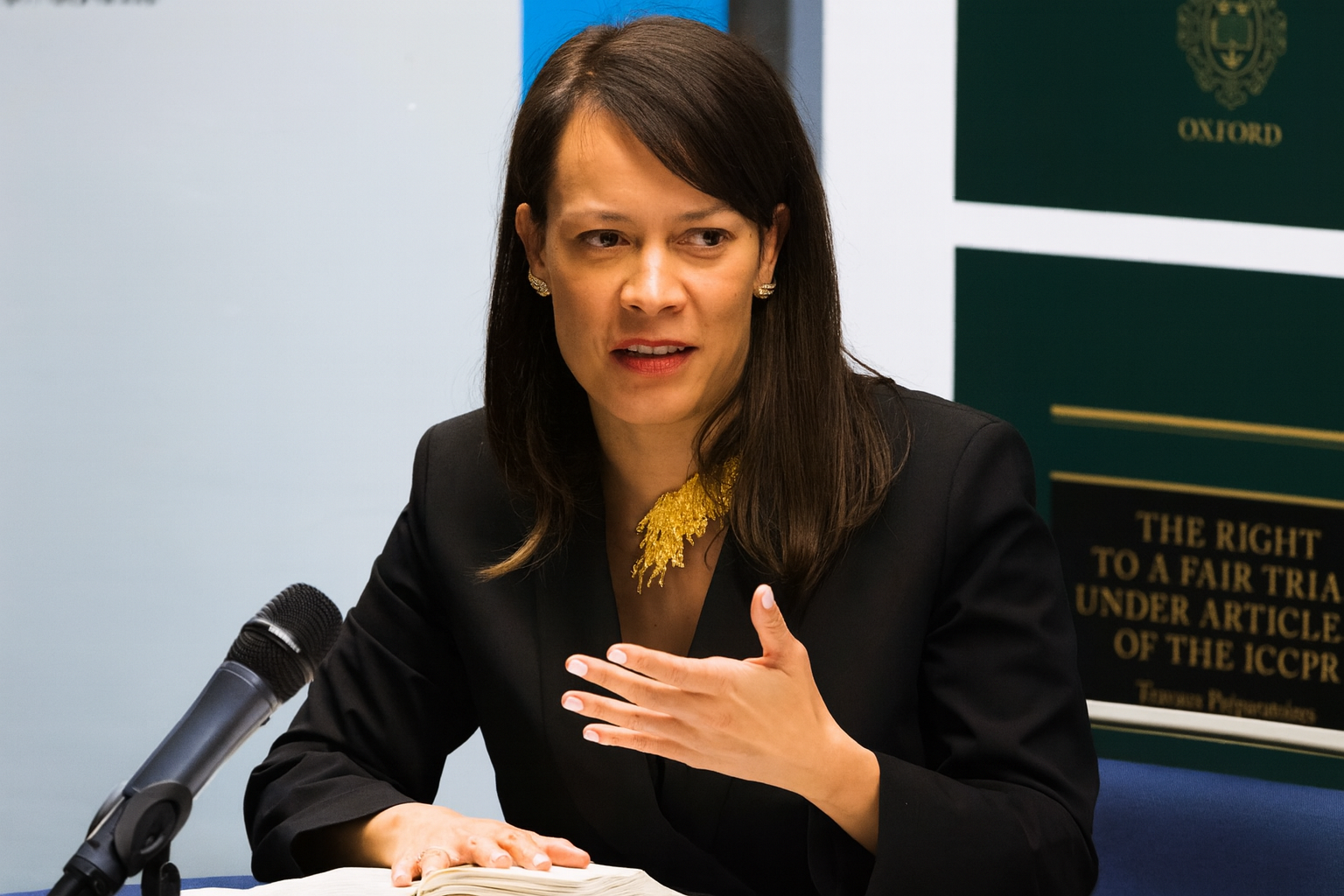
DIRECTOR AND PROFESSOR OF PUBLIC INTERNATIONAL LAW
Philippa Webb

Philippa Webb
DIRECTOR AND PROFESSOR OF PUBLIC INTERNATIONAL LAW
Philippa Webb is the Co-Founder & Director of the Oxford Institute of Technology and Justice. She is also Professor of Public International Law at the Blavatnik School of Government, and fellow of Exeter College, Oxford.
Her research interests span all of Public International Law, with particular expertise in international dispute settlement, human rights, international organizations law, international humanitarian law and international criminal law. She has been described as “the foremost expert on state immunity”. Her approach is to engage in comprehensive, often collaborative, research that informs and improves decision-making and contributes to better outcomes for the international community. Her current research concerns how national and global justice systems can support flourishing societies and uphold fundamental rights.
Philippa has extensive experience in international and national courts, with prior roles including Special Assistant and Legal Officer to Judge Rosalyn Higgins GBE QC during her Presidency of the International Court of Justice and legal adviser to the Chief Prosecutor at the International Criminal Court. She is a barrister at Twenty Essex and appointed to the UK Attorney-General’s Public International Law Panel of Counsel. She regularly appears as counsel and advocate before the International Court of Justice, the European Court of Human Rights, the International Tribunal For the Law of the Sea, inter-State arbitral tribunals and the UK Supreme Court.
Her publications include: Freedom of Speech in International Law (2024, chapters on insulting speech and false speech, Amal Clooney & Lord David Neuberger KC, eds), The Right to a Fair Trial in International Law (2021, with Amal Clooney) Oppenheim’s International Law: United Nations (2017, with Dame Rosalyn Higgins GBE KC, D Akande, S Sivakumaran and J Sloan), The Law of State Immunity(2015, with Lady Fox KC), International Judicial Integration and Fragmentation (2012, 2015). Her research has been funded by the British Academy, the Balzan Foundation, UNESCO, and the Nuffield Foundation and has been used by the United Nations to develop training for trial monitors around the world. Her scholarship been cited by the leading national courts in the United Kingdom, Canada, Germany, Australia and South Africa and has twice been awarded the top prize in international law publishing – the American Society of International Law’s Certificate of Merit.
Philippa was previously Professor of Public International Law at King’s College London and founding Co-Director of the Centre for International Governance and Dispute Resolution. She has held visiting positions at Columbia University, the Graduate Institute in Geneva, the Vienna Diplomatic Academy and Université Paris Nanterre. In 2023, she was the Director of Studies (English speaking section) of the Hague Academy of International Law for its centenary edition.
Philippa is a founding Board Member of the Clooney Foundation for Justice. She is a member of the Public International Law Advisory Panel of the British Institute of International & Comparative Law, an advisor to the American Law Institute’s Restatement of the Foreign Relations Law of the United States, a legal expert to the Commission of Small Island States on Climate Change and International Law, an advisor to the Tokyo International Law Seminar, and a member of a working group of the Committee of Legal Advisers on Public International Law of the Council of Europe. She has served on the Task Force on Accountability for Crimes Committed in Ukraine and the Governing Board of the European Society of International Law.
Philippa speaks to the media on issues of international law and co-hosts the EJIL: Talk! Podcast. She serves on the editorial boards of the International & Comparative Law Quarterly, the Leiden Journal of International Law, the Journal of International Criminal Justice, the Max Planck Yearbook of United Nations Law and the Oxford University Undergraduate Law Journal.
Philippa holds a doctorate (JSD) and an LLM from Yale Law School. She obtained the University Medal in her LLB and the University Medal and First Class Honours in her BA (Asian Studies – Advanced Japanese Studies), both of which were awarded by the University of New South Wales in Australia.
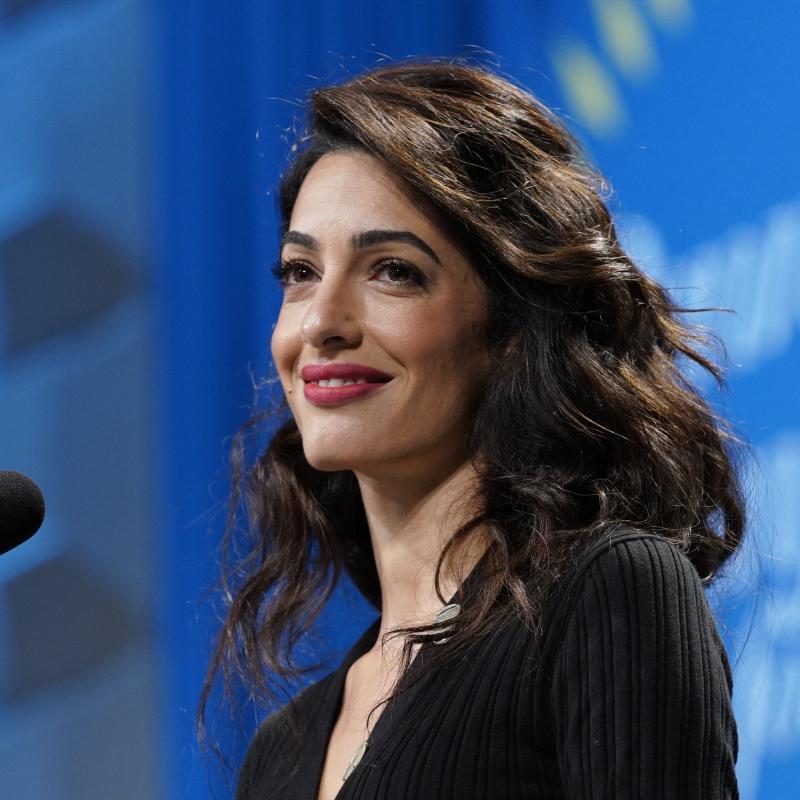
SENIOR FELLOW AND PROFESSOR OF PRACTICE IN INTERNATIONAL LAW
Amal Clooney

Amal Clooney
SENIOR FELLOW AND PROFESSOR OF PRACTICE IN INTERNATIONAL LAW
Amal Clooney is a Professor of Practice in International Law at the Blavatnik School of Government and is co-founder of the Oxford Institute of Technology and Justice (launching in October 2025). Amal is one of the leading human rights lawyers in the world. She is a preeminent advocate for genocide survivors, political prisoners and wrongfully detained journalists. Her contributions have been recognised by the Committee to Protect Journalists, the American Society of International Law, the Reporters Committee for Freedom of the Press, the Simon Wiesenthal Center, the United Nations, the World Economic Forum, the Kings Trust and Time Magazine. Most recently, in 2024, she won the Legal 500 Award for international lawyer of the year.
Amal’s practice has included representing victims of sexual violence in the first trials in which ISIS members have been convicted of genocide and crimes against humanity. She represents over 800 ISIS victims in the first case in a US court seeking to hold ISIS financiers responsible for supporting the terror group. She has represented Armenia in a case involving the Armenian genocide and was counsel to over 100 victims of crimes against humanity in Darfur, Sudan, at the International Criminal Court. In 2022, Amal led a Legal Task Force that advised the government of Ukraine on legal avenues to secure accountability for war crimes and compensation for victims in Ukraine.
Amal frequently represents political prisoners and has helped to secure the freedom of journalists imprisoned for their work across the globe. Her work has included defending Reuters journalists who uncovered evidence of genocide in Myanmar, journalists covering protests in Egypt and a leading investigative journalist exposing corruption in Azerbaijan, all of whom were released following her work. She currently represents Nobel laureate Maria Ressa, who faces decades behind bars for her work as a journalist in the Philippines. Amal previously served as a rapporteur for the International Bar Association’s Human Rights Institute and as a member of the United Kingdom’s Team of Experts on preventing sexual violence in conflict zones. She has been appointed to the UK Attorney General’s Public International Law Panel of Counsel and as a Special Envoy by the former UK Foreign Secretary. She was also deputy chair of a Panel of Legal Experts on Media Freedom, chaired by a former UK Supreme Court President, that has provided legal and policy advice to over 50 governments. She is a regular public speaker and has addressed the UN Security Council and General Assembly on multiple occasions.
In 2016, Amal co-founded the Clooney Foundation for Justice, which provides free legal aid in defence of free speech and women’s rights in over 40 countries. Its work has led to dozens of journalists being set free and thousands of women receiving free legal support to defend their rights, including their rights to freedom from abuse, economic discrimination and child marriage. In 2022, the Foundation partnered with the Obama Foundation’s Girls Opportunity Alliance and Melinda French Gates to advance gender equality and reduce levels of child marriage worldwide. The Foundation also provides a fellowship program to help young women lawyers across Africa launch careers in human rights.
Amal was formerly a Visiting Professor at Columbia Law School. In 2020, she published, with Professor Philippa Webb, The Right to a Fair Trial in International Law. The book was awarded the American Society of International Law Certificate of Merit, the top prize in international law publishing. In 2021, they published a companion volume, The Right to a Fair Trial under Article 14 of the ICCPR, bringing together for the first time the complete travaux préparatoires to Article 14 of the International Covenant on Civil and Political Rights. Both books have made a significant contribution to counsel and their clients across the world and have been cited in judicial proceedings including by the UK Supreme Court. In 2024, Amal published Freedom of Speech in International Law, with Lord David Neuberger, outlining the minimum protections for speech enshrined in international law, focusing on laws that are being weaponized to silence the press.
Amal holds law degrees from Oxford University and New York University School of Law and prior to joining the London bar, she practiced as a litigation attorney at Sullivan & Cromwell LLP in New York.

Oxford Lead
Lodovica Raparelli

Lodovica Raparelli
Oxford Lead
Lodovica Raparelli is Head of Research and Projects for the Oxford Institute of Technology and Justice. She is a lawyer specialised in Public International Law, International Arbitration, and Legal Innovation, and a Ph.D. researcher at King’s College London. She holds an LL.M. in International Dispute Resolution from King’s College London and has several years of experience working in leading international law firms in London and Milan, where she focused on international dispute resolution, particularly investor-State and commercial arbitration, public international law, environmental law, and human rights. She has also served as a consultant to a barrister in a prominent set of chambers in London.
In recent years, Lodovica has expanded her work into the fields of legal design and legal innovation, with a particular focus on improving access to justice. Legal design is a human-centred approach to law that uses design thinking to make legal systems more accessible, understandable, and democratic—especially for individuals who may often feel excluded from traditional legal processes.
She has been invited to speak at numerous international events and academic forums on legal design and access to justice, including at the Conference on Access to Justice at UNSW Sydney, the International Legal Ethics Conference in Amsterdam, the LegalTechTalk in London, a Lecture on Public Law and Innovation at the University of Bologna, and a module on ADR and Innovation at the University of Milan “La Statale”.
She teaches Public International Law at the Blavatnik School of Government, University of Oxford, and previously taught at King’s College London.
Lodovica is also Project Manager and Junior Fellow at the Centre for International Governance and Dispute Resolution (CIGAD), which brings together academics, policymakers, and practitioners to address global challenges through international law and dispute resolution.
She is bilingual in English and Italian, speaks Spanish, and is admitted to the Italian Bar.

Daisy Peterson

Daisy Peterson
Daisy is the Research Associate in International Law at the Oxford Institute of Technology and Justice, conducting research across all three Pillars of the Institute’s work. Her expertise spans general international law, State responsibility, and human rights. She holds a Law LLB from King’s College London (First Class Honours) where she was awarded the Jelf Medal. After graduating from King’s, Daisy completed the Bachelor of Civil Law at Magdalen College, University of Oxford (Distinction). She is a current DPhil Candidate in international law at Magdalen College, funded by the AHRC-OOC DTP Studentship.
Daisy has a particular interest in State immunity, having published on the immunity of individuals and States under international law. She has also competed in and coached for international mooting competitions, such as the Philip C. Jessup International Law Moot Court Competition (at both the national and international rounds) and the Nelson Mandela World Human Rights Moot. She has been a visiting lecturer at King’s College London.
Daisy has contributed to research papers by the Open Society Justice Initiative, European Parliamentary Research Service, as well as Redress and the Clooney Foundation for Justice.
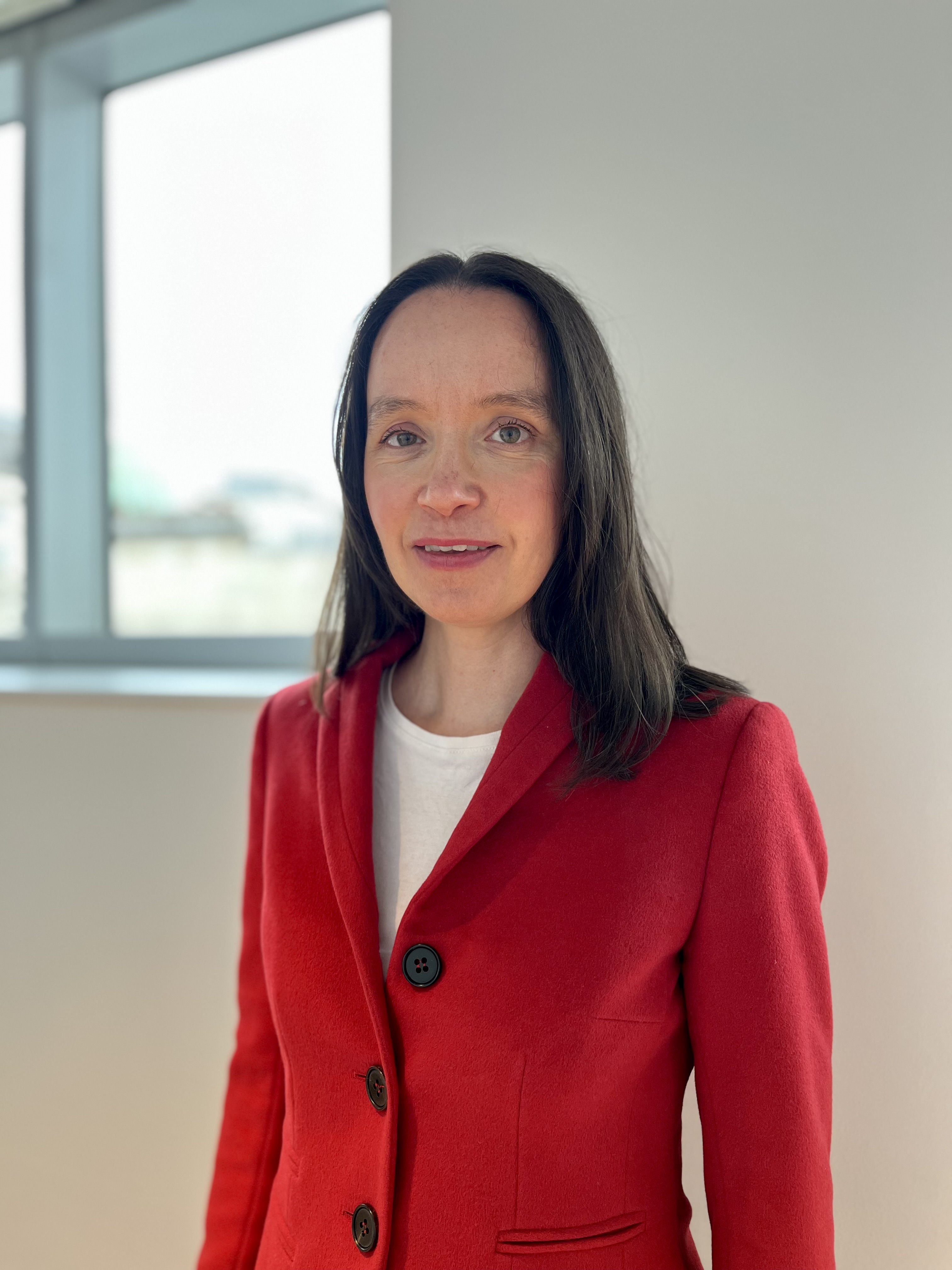
Co-Lead
Katharina Lewis

Katharina Lewis
Co-Lead
Katharina Lewis is a Legal Director at the Office of Amal Clooney and the co-lead of the Advancement Pillar at the Oxford Institute of Technology and Justice. Katharina’s work at the Institute focusses on emerging practice and regulation of the use of AI in courts and compliance with international human rights standards, including the right to a fair trial.
Katharina has more than two decades’ experience as an international lawyer comprising both research and practice as a litigator. Katharina’s research has looked at international and comparative dispute resolution including the right to a fair trial. She served as editorial assistant to authors Amal Clooney and Philippa Webb on ‘The right to a fair trial in international law’ (OUP 2021) and provided research for Amnesty International’s Fair Trials Manual (2nd edition 2014). Earlier research focussed on comparative litigation procedure and international arbitration.
Katharina has a wide-ranging litigation practice. She has advised states, NGOs, and victims of human rights violations in litigation before the English High Court, the African Court of Human and Peoples’ Rights, and the International Court of Justice. She has represented survivors of international crimes including as assistant counsel before the International Criminal Court. Katharina also worked at law firm Cliford Chance LLP, where she represented corporates, individuals, and states in international arbitration for more than a decade including acting for tech companies in IT infrastructure and digital advertising disputes.
Katharina is admitted to practise in England and Wales, Germany, and New York. She is a native German speaker and has a good working knowledge of French. She holds law degrees from Columbia Law School (LLM) and the University of Oxford (BA in Jurisprudence; St Peter’s College).
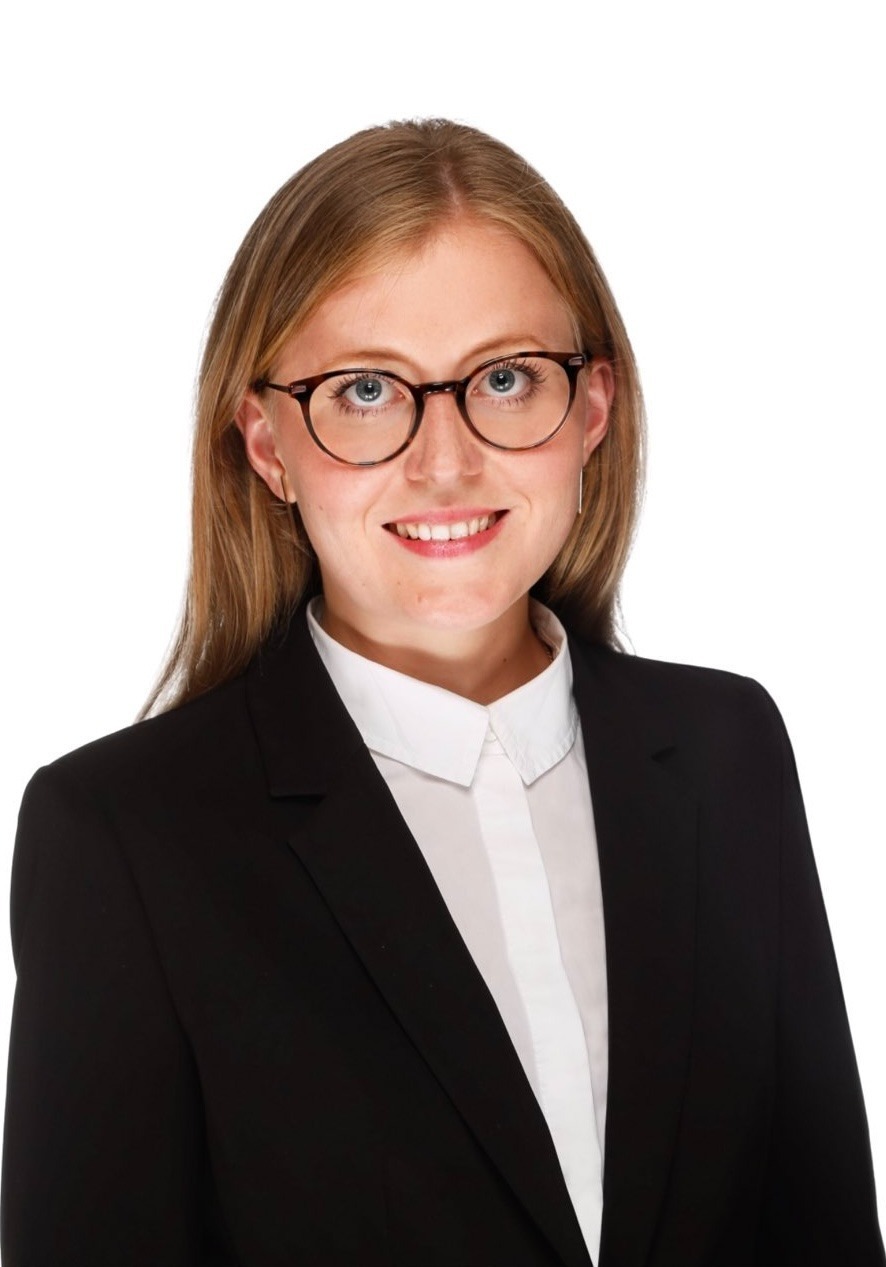
Co-Lead
Nadine Reiner

Nadine Reiner
Co-Lead
Nadine is a Senior Lawyer at the Office of Amal Clooney and co-lead of the Advancement Pillar at the Oxford Institute of Technology and Justice. Her research at the Institute focuses on emerging regulation of the use of AI in criminal proceedings and compliance with international human rights standards, including the right to a fair trial.
Nadine specialises in international law and human rights. She works on cases before international and national courts, advocating for accountability and justice in situations of genocide, widespread sexual violence, and other serious human rights violations. Over the past five years, Nadine has been involved in precedent-setting human rights cases, including the world’s first trials resulting in a conviction of ISIS members for genocide committed against the Yazidis, as well as the first civil case in a U.S. court seeking to hold a multinational corporation responsible for supporting ISIS. Nadine is also part of the international legal team representing renowned journalist and Nobel Peace Prize Laureate Maria Ressa, who faces imprisonment for her work as a journalist in the Philippines. Nadine contributed academic research to The Right to a Fair Trial in International Law (Clooney & Webb, OUP) and Freedom of Speech in International Law (Clooney & Neuberger, eds., OUP).
Nadine previously practised commercial litigation at an international law firm in Germany. She studied in Halle and Chongqing and graduated with the German First State Exam and a master’s degree in business and economic law (LL.M.oec.). She qualified for the German judiciary and bar with the Second State Exam, completing placements at the World Bank and European Commission. Nadine is fluent in English, German, and Russian.
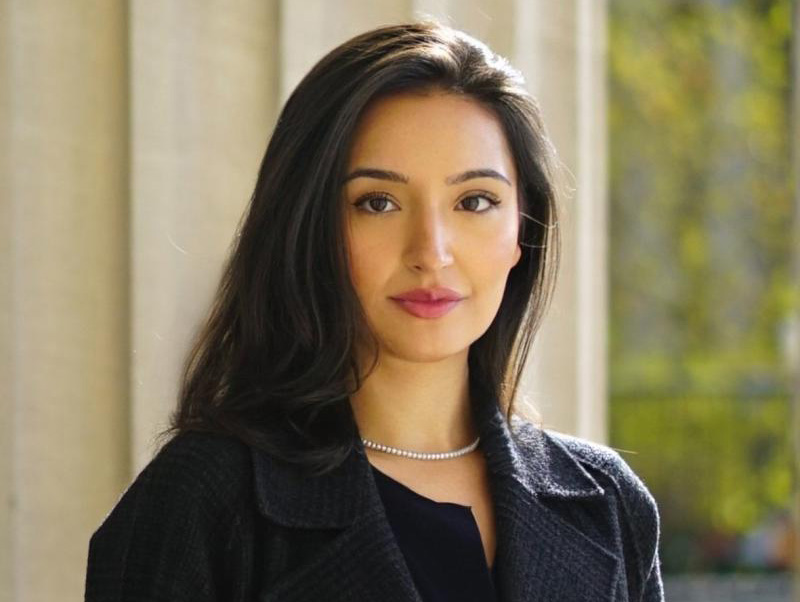
Sara Wahedi

Sara Wahedi
Sara Wahedi is a Research Associate (Technology Specialist) with the Oxford Institute of Technology and Justice. She is also Chief Executive Officer of Civaam, a civic-tech startup focused on building innovative technological solutions for crisis regions, designed and developed by local technologists.
Sara previously interned with Apple’s AIML (Artificial Intelligence and Machine Learning) team in Cupertino and Seattle, on projects focused on user-centred design. Sara’s commitment to leveraging technology for social impact has earned her numerous accolades, including TIME Magazine's Next Generation Leader, MIT Technology Review's Innovators Under 35, and Forbes' 30 Under 30. In 2023, she was also recognised as One Young World's Entrepreneur of the Year.
At the Blavatnik School of Government, she is focusing on the intersections of technology and law, exploring how innovation can drive accountability mechanisms in regions where evidence collection is restricted.
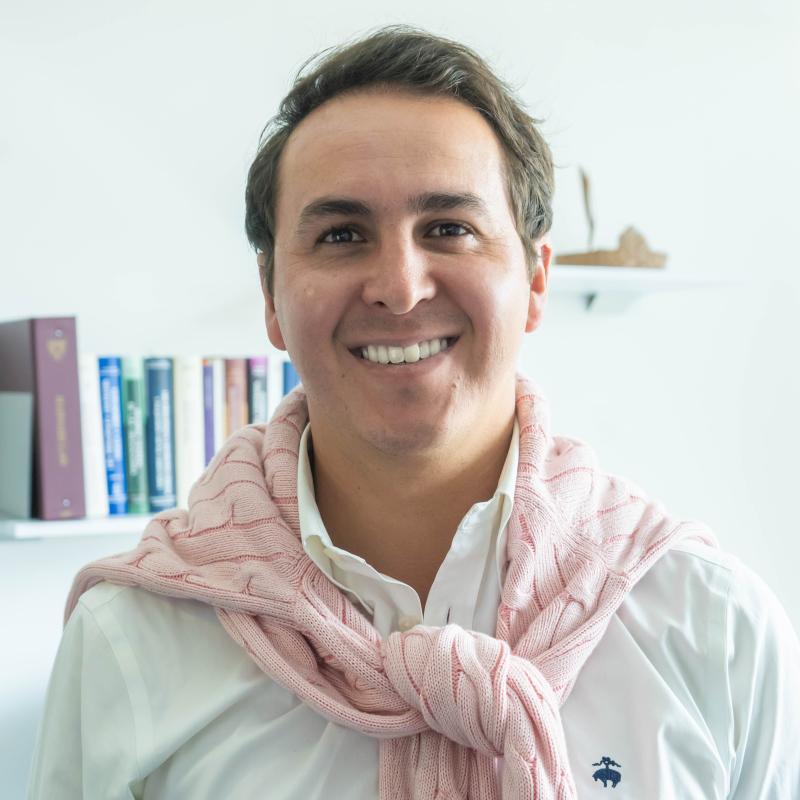
ALEJANDRO MOYA RIVEROS





